Some more things I liked about 2011:
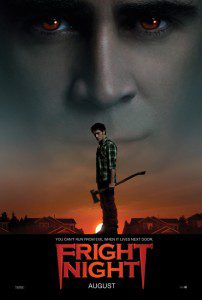 Movie Remakes that Didn’t Suck: Normally, remaking a film is a near-guaranteed failure. Not only does it show a lack of creativity on the part of the studio by rehashing an older (and often superior) film, but it also leaves them open to the inevitable backlash from fans of the original, who will stop at nothing to point out every single flaw in the remake. Case In Point: “Psycho”- it might have been reshot frame-by-frame, but it lacked the style and suspense of the original. Rob Zombie’s “Halloween” re-envisioning upped the violence and left out the social context (and outright creepiness) of Michael Myers. And the entire point of the original “Clash of the Titans” was to showcase Harryhausen’s skills, so the CG remake lost even that with its predictable effects.
Movie Remakes that Didn’t Suck: Normally, remaking a film is a near-guaranteed failure. Not only does it show a lack of creativity on the part of the studio by rehashing an older (and often superior) film, but it also leaves them open to the inevitable backlash from fans of the original, who will stop at nothing to point out every single flaw in the remake. Case In Point: “Psycho”- it might have been reshot frame-by-frame, but it lacked the style and suspense of the original. Rob Zombie’s “Halloween” re-envisioning upped the violence and left out the social context (and outright creepiness) of Michael Myers. And the entire point of the original “Clash of the Titans” was to showcase Harryhausen’s skills, so the CG remake lost even that with its predictable effects.

But for every “Arthur,” there will (or at least should) be a “True Grit.” 2011 gave some truly interesting takes on the idea of the remake (aside from the aforementioned “Grit”). “Fright Night” took a Vincent Price favorite about the vampire next door, and made it ghoulish, atmospheric, and over-the-top (mostly thanks to a superb David Tennant, and downright frightening Colin Farrell). Ditto to Guillermo del Toro’s “Don’t Be Afraid of the Dark,” possibly the year’s scariest movie. And, all criticism aside, the remake of “Straw Dogs” maintained the violence level of the original, but managed to add just enough modern context to keep it relevant (and also, a creepy turn by James Marsden, I still can’t get his face out of my head). None of these will go down in history as genre-defining, but they managed to avoid a lot of the pitfalls made by today’s studios messing with yesterday’s material.
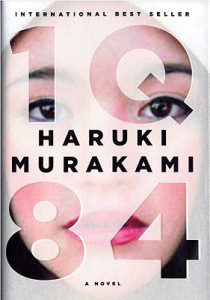 1Q84: Speaking of remakes, this book might have flown under the radar of many US readers, but definitely should not be ignored. Fans of Japanese literature (aside from manga and light novels) already know the name Haruki Murakami, author of such literary mindf**ks as “Kafka on the Shore” and “Wind-Up Bird Chronicle.” In his latest opus, Murakami manages to tackle re-interpreting George Orwell’s visionary novel “1984” by blending it in with his own unique style…of mindf**kery. Seriously, this book is his third (or fourth, depending on how one views “Hard Boiled Wonderland & The End of the World”) attempt to blow open the confines of modern literature by figuratively standing over the reader and f**king their brain until nothing makes sense anymore, then putting it back together again, completely out of order. And, like his previous attempts, the final result is immensely satisfying, and leaves the reader yearning to be mindf**ked yet again. With 1Q84, Murakami has attained the perfect mindf**k, something he no doubt has been trying for his entire career. Now he can sit back, smoke a cigarette, and contemplate how best to do it again.
1Q84: Speaking of remakes, this book might have flown under the radar of many US readers, but definitely should not be ignored. Fans of Japanese literature (aside from manga and light novels) already know the name Haruki Murakami, author of such literary mindf**ks as “Kafka on the Shore” and “Wind-Up Bird Chronicle.” In his latest opus, Murakami manages to tackle re-interpreting George Orwell’s visionary novel “1984” by blending it in with his own unique style…of mindf**kery. Seriously, this book is his third (or fourth, depending on how one views “Hard Boiled Wonderland & The End of the World”) attempt to blow open the confines of modern literature by figuratively standing over the reader and f**king their brain until nothing makes sense anymore, then putting it back together again, completely out of order. And, like his previous attempts, the final result is immensely satisfying, and leaves the reader yearning to be mindf**ked yet again. With 1Q84, Murakami has attained the perfect mindf**k, something he no doubt has been trying for his entire career. Now he can sit back, smoke a cigarette, and contemplate how best to do it again.
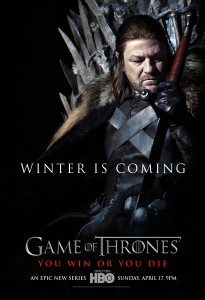
Fantasy TV Makes a Comeback:Swords and sorcery, we missed you. Given the predominance network television places on sitcoms and police procedural dramas these days, it was only a matter of time before some good old-fashioned escapism began to make its way back on the airwaves. While normally derided by critics and the general public, fantasy television began to make a strong comeback in 2011. First off, April’s release of the TV adaptation of George R R Martin’s best-selling “Game of Thrones” book series brought viewers into a world where intrigue brought down kingdoms, and warring provinces set the stage for revolution. Add in a few ghostly monsters, plenty of nudity and sex (since it WAS on HBO) and dynamite performances by Sean Bean, Mark Addy and Peter Dinklage (who won an Emmy for his role as fan-favorite Tyrion Lannister) and fantasy TV had made its triumphant return. Then in the fall, ABC debuted “Once Upon A Time,” throwing every single beloved fairy-tale character into modern-day Maine, wiped all their memories and subjected them all to a curse that kept them separated from their past. While bearing a striking resemblance to the Vertigo Comics series “Fables,” Once Upon…manages to be both compelling and intriguing…and good fun. Which, in the end, is the point of television anyway- entertainment.
 Period Piece TV Continues to Enthrall: While fantasy might have been out of sight for a while, period piece television has managed to maintain its welcome for some time. “Mad Men” remains a popular foray into 1960’s advertising, and “Boardwalk Empire” has garnered plenty of fans with its often frank depiction of Prohibition Era New Jersey.
Period Piece TV Continues to Enthrall: While fantasy might have been out of sight for a while, period piece television has managed to maintain its welcome for some time. “Mad Men” remains a popular foray into 1960’s advertising, and “Boardwalk Empire” has garnered plenty of fans with its often frank depiction of Prohibition Era New Jersey.
 2011 added plenty of new series to this mix- Showtime introduced audiences everywhere to the depravations of the 16th century Catholic Church, and European political scheming with its brilliant (and graphic) “The Borgias.” ABC took America back to the early days of air travel with the critically praised “Pan Am.” And A&E stripped away the fantasy behind the building of our nation’s railroad system with the dirty and compelling “Hell on Wheels.” But not every show managed to find a voice- NBC’s controversial “Playboy Club” met an early end without an audience. And despite acclaims, Pan Am might end up going the same way. But as long as we still find fascination with our collective past, there will always be a place for these types of shows.
2011 added plenty of new series to this mix- Showtime introduced audiences everywhere to the depravations of the 16th century Catholic Church, and European political scheming with its brilliant (and graphic) “The Borgias.” ABC took America back to the early days of air travel with the critically praised “Pan Am.” And A&E stripped away the fantasy behind the building of our nation’s railroad system with the dirty and compelling “Hell on Wheels.” But not every show managed to find a voice- NBC’s controversial “Playboy Club” met an early end without an audience. And despite acclaims, Pan Am might end up going the same way. But as long as we still find fascination with our collective past, there will always be a place for these types of shows.
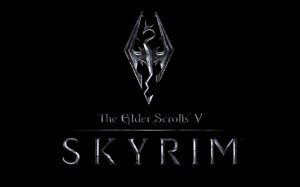 Elder Scrolls Finally Gets It Right: No game embodies the American Sandbox RPG quite like developer Bethesda’s sweeping Elder Scrolls series. Unfortunately, those same games often got it wrong: Morrowind was endlessly buggy, and crashed unless you closed every door you opened. Oblivion was too reliant on classes for leveling, and didn’t warn you if you were deviating too far from the story (I actually logged around 70 hours in the game while not advancing the plot at all). But Elder Scroll V: Skyrim finally managed to streamline the mechanics while not sacrificing what made these sandbox RPGs so addictive. Now, you can level any skill you want and it contributes to your overall progress. Now you can see your objective clearly marked on your map (and if you get lost, you can always cast “Clairvoyance”). Now your character develops in a way that suits your playing style, not because of a system of preset statistics and skills. Want to make a Wood Elf berserker with sniping potential and a disdain for magic? Go right ahead (her name is Tathyr, by the way). Want to devote all your time to slinging spells? It’s your choice. Skyrim is the ultimate experience in open-ended gaming.
Elder Scrolls Finally Gets It Right: No game embodies the American Sandbox RPG quite like developer Bethesda’s sweeping Elder Scrolls series. Unfortunately, those same games often got it wrong: Morrowind was endlessly buggy, and crashed unless you closed every door you opened. Oblivion was too reliant on classes for leveling, and didn’t warn you if you were deviating too far from the story (I actually logged around 70 hours in the game while not advancing the plot at all). But Elder Scroll V: Skyrim finally managed to streamline the mechanics while not sacrificing what made these sandbox RPGs so addictive. Now, you can level any skill you want and it contributes to your overall progress. Now you can see your objective clearly marked on your map (and if you get lost, you can always cast “Clairvoyance”). Now your character develops in a way that suits your playing style, not because of a system of preset statistics and skills. Want to make a Wood Elf berserker with sniping potential and a disdain for magic? Go right ahead (her name is Tathyr, by the way). Want to devote all your time to slinging spells? It’s your choice. Skyrim is the ultimate experience in open-ended gaming.
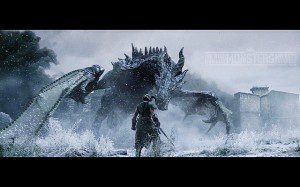
And it has dragons. Lots and lots of dragons.
Up Next: Some personal ruminations.

